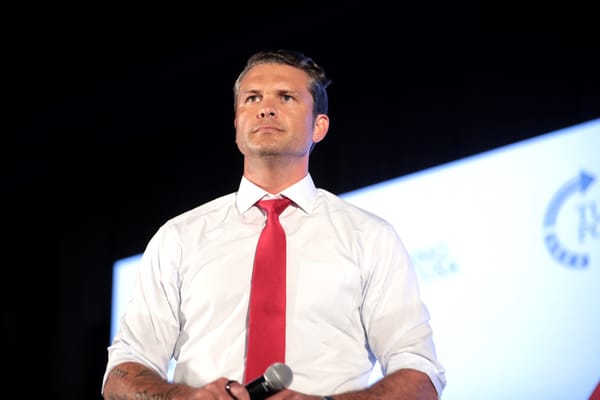An essay published by The New Yorker on Monday claims that Pete Hegseth, President-elect Donald Trump’s nominee for secretary of defense, “was forced to step down” as president of the advocacy group Concerned Veterans for America amid “serious allegations” of misconduct. We’re talking manhandling strippers, public drunkenness, lewd and obnoxious behavior—the kind of thing that would raise questions about someone slated to lead the Pentagon.
“Two former senior leaders of CVA have denied the ‘whistleblower’ allegations.”
Except: In interviews with me, two former senior leaders of CVA have denied the “whistleblower” allegations against Hegseth. They insisted that he left the organization voluntarily, without any pressure bearing down on him from its funders. And unlike The New Yorker’s sources, one of Hegseth’s CVA defenders spoke on the record.
“I was there for most of those alleged incidents, and this stuff is just complete fabrications,” said Sean Parnell, a former US Army airborne ranger who retired as a captain with a Purple Heart and two Bronze Stars and served as a senior adviser at CVA during Hegseth’s tenure. Parnell asserted that the “whistleblower” claims had come from “people who were let go as the organization was growing, who weren’t fulfilling their duties. They just weren’t.”
“All false,” said a veteran of the Global War on Terror who served alongside Hegseth in a senior role at CVA. “These were false allegations made by a group of disgruntled employees fired by Pete.” In some cases, the CVA veteran said, the complainants attributed their own carousing to Hegseth.
Parnell and the second CVA veteran also rejected The New Yorker’s claim that Hegseth was forced out of his position at the organization owing to personal misconduct. “That couldn’t be further from the truth,” said Parnell. “This was right before President Trump began his first term. Pete and I were on the media all the time, talking about national security and foreign policy. And he and I became big believers in Trump’s vision of foreign policy. The funders of that organization [CVA] didn’t necessarily believe that. And because of that policy difference, over what America’s foreign and national-security policy should be, Pete parted ways. It was 100 percent professional, political differences.”
The New Yorker also suggested that Hegseth’s departure from CVA was abrupt, leaving him with no immediate job options. This also wasn’t true, Parnell told me. “He was a Fox News contributor,” he noted, and in negotiations to become a full-time anchor at the cable network. “ABC was interested in him, as well, if memory serves. So it wasn’t just Fox.”
The second CVA veteran echoed this characterization: “He left because his role on Fox was growing and he had a book deal. ‘Pete didn’t have another job lined up,’ the piece says, but very shortly after he left, he became a full-time Fox & Friends host.”
So why are establishment forces slinging so much mud at Hegseth? Said the second CVA veteran: “Pete believes that the wars we were involved in [after 9/11] were a disaster for us, for our armed forces, and for the people of those countries. Like a lot of veterans, he believes that he was lied to, and he believes he has to shake up the nat-sec complex. That’s why a lot of people are going after him.”
To be sure, Hegseth has yet to fully explain the evolution of his thinking on American security, from a War on Terror-era hawk to today’s more restrained view. And that’s the sort of thing lawmakers should focus on as they weigh his nomination—not decade-old personnel smears strenuously denied by his fellow veterans.
